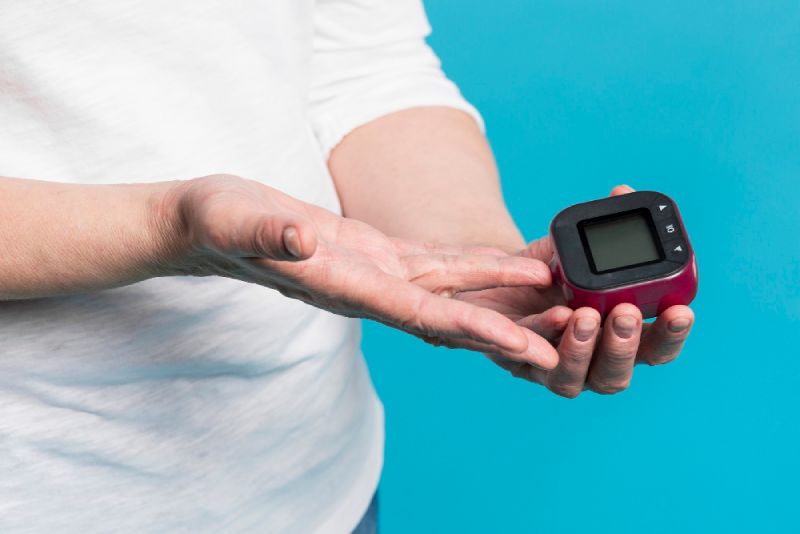Diabetes, a chronic metabolic disorder, is widely recognized for its persistent nature and potential complications. However, the question often arises, “Can diabetes be reversed?“. The answer, interestingly, is dependent on the type of diabetes and the stage of its progression. Predominantly, the focus on reversal is placed on Type 2 diabetes, the more common variant, which is highly influenced by lifestyle factors.
The Types of Diabetes
Type 1 Diabetes
Type 1 diabetes is an autoimmune condition in which the body’s immune system destroys the insulin-producing beta cells in the pancreas. This leads to an insulin deficiency, making glucose management impossible without the administration of insulin. As of my knowledge cutoff in September 2021, there is no known way to reverse Type 1 diabetes.
Type 2 Diabetes
Type 2 diabetes, on the other hand, occurs when the body becomes resistant to insulin or the pancreas fails to produce enough insulin. This form of diabetes is strongly associated with obesity, lack of physical activity, and poor diet. A significant body of research has suggested that Type 2 diabetes can be reversed, at least temporarily, by implementing specific lifestyle changes.
Can Type 2 Diabetes Be Reversed?
In the context of Type 2 diabetes, “reversal” does not mean cure. Rather, it refers to the ability to achieve and maintain normal blood glucose levels without the need for diabetes medication. It is possible through significant lifestyle modifications, including healthy eating, regular physical activity, and, in some cases, substantial weight loss.
A study conducted by the Diabetes Remission Clinical Trial (DiRECT) showed that nearly half of the participants who underwent an intensive weight management program went into remission after a year. They were able to maintain normal blood glucose levels without the use of diabetes medication.
“Diabetes reversal does not imply a cure, but rather a potential method of managing Type 2 diabetes without the constant need for medication.”
Lifestyle Modifications for Diabetes Reversal
A combination of healthy eating, regular physical activity, and weight loss can lead to the reversal of Type 2 diabetes. These lifestyle modifications aim to improve insulin sensitivity and promote better blood glucose management.
Healthy Eating: The focus is on consuming a balanced diet rich in fruits, vegetables, lean proteins, and whole grains while limiting the intake of processed foods, saturated and trans fats, and high-sugar foods and drinks.
Regular Physical Activity: Regular exercise helps to improve insulin sensitivity and reduce blood glucose levels. The American Diabetes Association recommends at least 150 minutes of moderate-intensity aerobic activity per week.
Weight Loss: For those who are overweight or obese, losing 5-10% of their body weight can significantly improve insulin sensitivity and blood glucose control.
The Role of Medical Interventions
While lifestyle changes form the cornerstone of Type 2 diabetes reversal, in some cases, medical interventions might be necessary. Bariatric surgery, for instance, has shown promising results in diabetes reversal.
However, it is crucial to remember that while diabetes reversal is a possibility for some, it might not be achievable for all. Factors such as the duration of diabetes, the degree of pancreatic function, and the individual’s capacity to make and maintain lifestyle changes can significantly impact the outcome.
“Medical intervention, while effective in some cases, should be considered in conjunction with lifestyle modifications for the management of Type 2 diabetes.”
Conclusion
While Type 1 diabetes cannot be reversed according to current understanding, significant strides have been made in the reversal of Type 2 diabetes, primarily through lifestyle modifications. Emphasizing a healthier diet, regular physical activity, and substantial weight loss, many individuals have successfully returned their blood glucose levels to normal without the need for medication.
Nevertheless, it is essential to remember that “reversal” is not synonymous with a “cure.” Even after achieving normal blood glucose levels, individuals must continue to maintain a healthy lifestyle to avoid relapse. Additionally, medical interventions like bariatric surgery can be effective, but should be considered a supportive measure alongside lifestyle changes, rather than a standalone solution.
As more research continues to unfold in this field, it provides hope for individuals with Type 2 diabetes worldwide. However, as promising as the prospect of diabetes reversal is, it is always recommended to consult a healthcare provider before making any drastic changes to your diet, exercise routine, or medication regimen.
References
- Lean ME, Leslie WS, Barnes AC, et al. Primary care-led weight management for remission of type 2 diabetes (DiRECT): an open-label, cluster-randomised trial. Lancet. 2018;391(10120):541-551.
- American Diabetes Association. 5. Lifestyle Management: Standards of Medical Care in Diabetes-2018. Diabetes Care. 2018;41(Suppl 1):S38-S50.
- Mingrone G, Panunzi S, De Gaetano A, et al. Bariatric-metabolic surgery versus conventional medical treatment in obese patients with type 2 diabetes: 5 year follow-up of an open-label, single-centre, randomised controlled trial. Lancet. 2015;386(9997):964-973.
